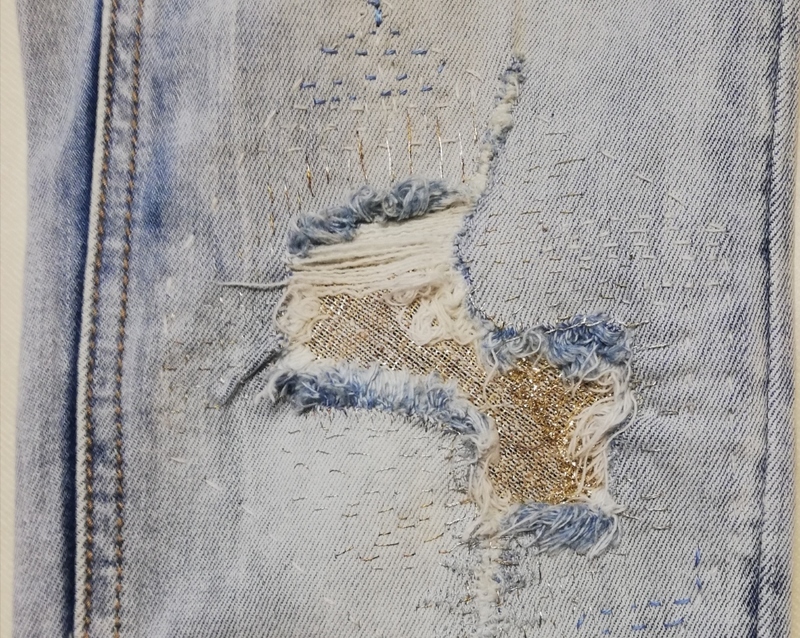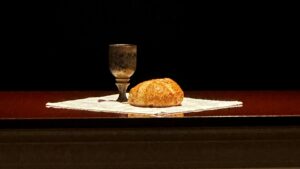In the Netherlands, a group of fashion designers offer a “Golden Joinery” workshop. Inspired by the Japanese technique Kintsugi, where broken porcelain is visibly repaired with gold, participants collaborate in mending clothes in ways that highlight the mending work rather than trying to mask it. Those who are invited bring “a dear but broken garment and mend it with gold.” As they remake their clothes, the repair becomes ornamental, a “golden scar.”
Articles of clothing are transformed in ways that highlight the places where they were torn or frayed. Perhaps this is something like what Paul meant when he said that he would “boast” in the things that showed his weakness. Although he’d experienced “surpassingly great revelations,” he doesn’t brag about them (2 Corinthians 12:6). He is kept from getting proud and overconfident, he says, by a “thorn” in his flesh (v. 7). No one knows exactly what he was referring to—perhaps depression, a form of malaria, persecution from enemies, or something else. Whatever it was, he begged God to take it away. But God said, “My grace is sufficient for you, for my power is made perfect in weakness” (v. 9).
Just as the rips and tears in old clothes can become sights of beauty as they’re remade by designers, the broken and weak places in our lives can become places where God’s power and glory may shine. He holds us together, transforms us, and makes our weaknesses beautiful.
What are some weaknesses you try to keep hidden from the world? How has God revealed His power through your weakness?
And that’s the memo by Amy Peterson in Our Daily Bread Devotional






